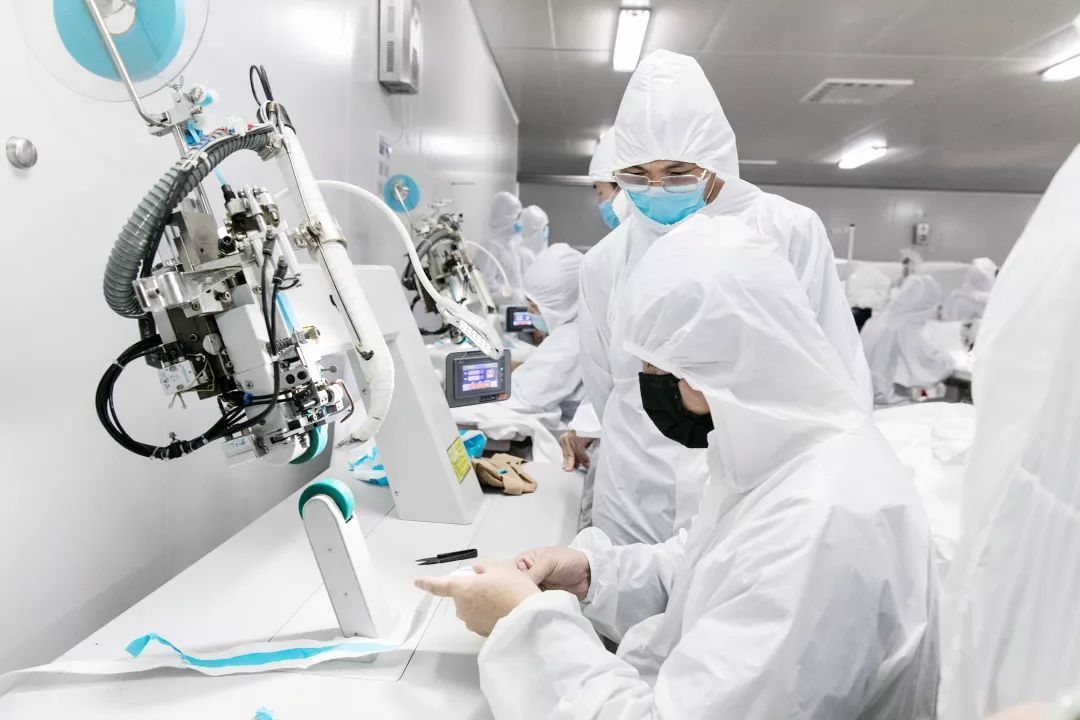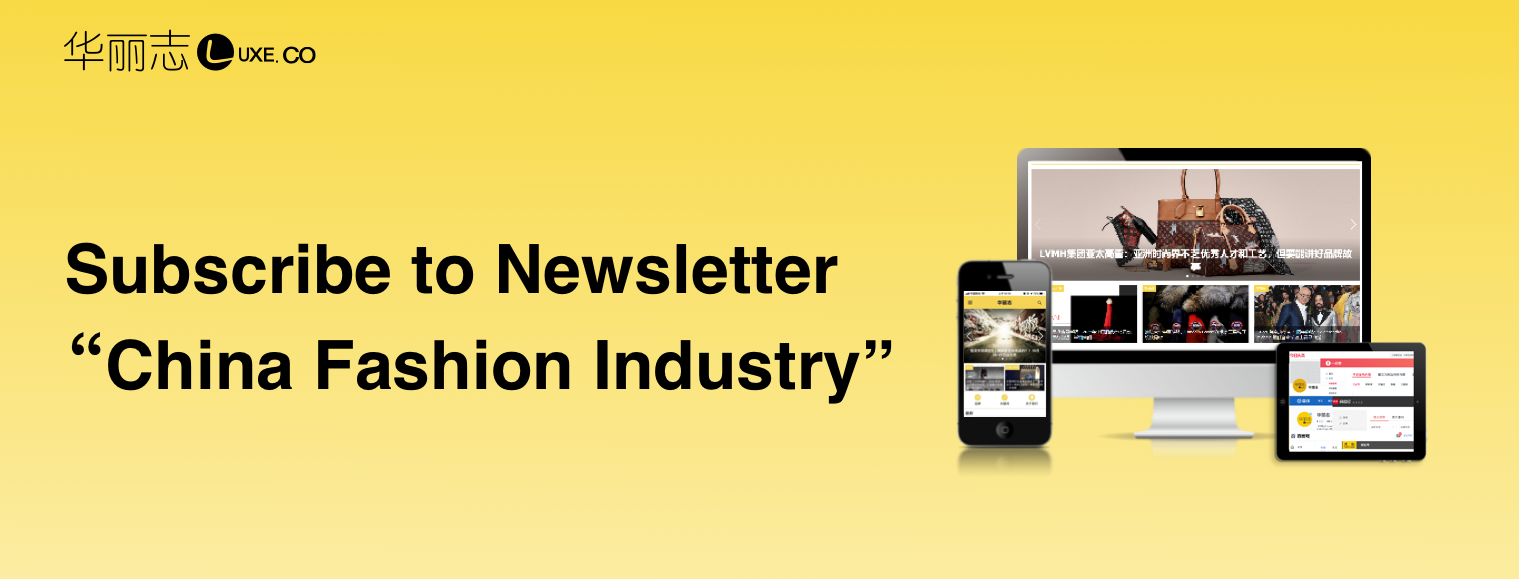INSIGHT | How Do Chinese Fashion Companies Help The Covid-19 Epidemic Frontline And Implement Measures To Help Themselves?
April 15,2020
Since the outbreak of Covid-19 in January 2020, Luxe.Co has been closely following events and reporting on corporate responsibility and the ability of enterprises to cope in times of crisis. It was found that a number of Chinese fashion enterprises assisted the government in controlling the epidemic by rapidly adjusting their production lines, adjusting the objectives of their business model, and trying new sales and communications channels in order to help themselves during the epidemic period, as summarized in this paper.
From Fashion Clothing To War Protection Gear
The shortage of protective gear was the major problem during the outbreak, with supplies of masks and protective suits unable to meet the ever-growing demand, and many companies took immediate action to play their part. After receiving requests for support from relevant departments, China Lilang quickly established a team to produce protective suits. Due to the high technical standards and strict requirements for the production environment to produce disposable surgical masks and protective suits, China Lilang cooperated with many other enterprises, such as Jiujiuwang Food, to finally develop and produce medical protective suits that could be mass-produced within three days.


The ERDOS Group, with a foundation in equipment and technological conditions, was faced with a shortage of raw materials. After receiving the order, the company quickly gathered raw materials from the surrounding area, contacted non-woven fabric manufacturers, and temporarily used a factory that made coats to make masks and protective suits.
The underwear brand, THREEGUN, started its operation in late January by quickly recalling local workers to the factory. It opened a production line of protective suits within three days, and produced its first sample on February 1. After expertsт examination and confirmation from the related departments, the suits were approved and put into production.
According to the preliminary statistics of Luxe.Co, the following local enterprises made progress in the research and development and production of protective gear:
On January 26, the underwear brand, THREEGUN, achieved a daily production capacity of 5,000 sets, with the first batch of goods handed over on February 5. The next step was to increase the daily production to more than 8,000 sets as soon as possible. On January 27, the textiles and clothing enterprise, the Youngor Group, said that its R&D team was working on a new mask for virus prevention, which would be put into production as soon as it had been successfully developed.
On January 28, the ERDOS Group expected to be able to produce about 5,000 protective suits and 5,000 to 10,000 masks a day. On February 3, the Hongdou Group announced the addition of "category I medical device production, category ii medical device production" to its business scope. The company would produce medical disposable protective suits after obtaining the relevant approval documents. Meanwhile, it had successfully rolled out its first set of general protective suits. On February 6, China Lilang announced that protective suits had been delivered to the government for acceptance testing and entered mass production. A follow-up second and third batches would also be produced to aid the epidemic area.

Lights In The Disaster
A number of corporate leaders expressed concern about the huge impact of the outbreak, with offline stores closed, sales activities canceled, new product launches delayed, fashion shows suspended, combined with the broad uncertainty of the time the supply chain could return to work. In the face of these many difficulties, several enterprises took the initiative to adjust their goal and operations by trying new sales channels and communication.
-Close Down But Business As Usual
When the "traffic" of offline stores decreased sharply, PEACEBIRD adjusted its business strategy by following the trend of starting diversified sales channels, such as an online store Spring Sale and live streaming e-commerce, dynamically adjusting its new spring schedule, constantly launching new products to strengthen the communication and interaction with online consumers, and accelerating the development of online business.Т On February 6, the sales performance of the whole company exceeded 10 million yuan in a single day due to the joint effort of traditional online business and community marketing. On the night of the Lantern Festival on February 8, Zhang Jiangping, Chairman ofТ PEACEBIRD, wrote in a letter to employees that "half of our brands have achieved sales through different forms in our closed stores, with average daily retail sales of more than 8 million yuan, which is continuing to increase."
At the peak of the epidemic, 36 WeChat malls were launched nationwide, in addition to Anta Children's Tmall Official Flagship Store and Anta Official Mall. These malls continued to develop new products and content to establish close contact with target customers through the official channels (WeChat public account, TikTok, Weibo, Ins, Zhihu). At the same time, Anta Children established links with customers through shop assistants based on different regional climates and customer preferences. The new retail model of "store + community" could better achieve sales transformation in this special period, and physical stores could also remain "closed down but conduct business as well" through this new retail model.
-The Proportion Of Digital Channels Is Increasing
The outbreak of the epidemic mainly hit luxury brands with physical retail channels. Those that had already completed their online e-commerce storefront and especially those that had officially opened the online store, were still able to maintain a certain level of sales. Some luxury brands were more active in interacting with large e-commerce platforms to boost their online sales during this period.
Kevin Jiang, President of International Business, said that many luxury brands have closed some of their stores in China temporarily due to the outbreak and lowered their full-year forecast. With consumers barely outside their homes, many brands are bound to accelerate their expansion of digital marketing channels due to cash flow and inventory pressures. It is believed that the delayed containment of consumer demand will rebound as the epidemic gradually dissipates, leading to the effective recovery of the economy. From this perspective, the accelerated move toward online channels is not only a means to relieve short-term pressure to temporarily release means, but also an important part of a long-term strategy.
During the epidemic period, the SECOO Group announced that it welcomed any organization with goods and resources, such as high-end shopping malls, brand stores, buyers' shops, and outlet stores to cooperate through its livestream platform, social e-commerce sales platform, and WeChat mini program. In recent days, the company has also cooperated with Moschino, Todтs, Versace, MSGM, Lanvin and other luxury brands to launch the " Watch Show On Air", which will stream the Milan and Paris fashion shows.
- More Active Communication With Consumers
In addition to promoting online sales, brands also continued to communicate with users for marketing purposes. Since users can only stay at home, on February 5, Nike first pushed an article about home training on the official WeChat account, and guided users to download the Nike Training Club app to learn more about the training plan. This article soon received more than 100,000 views. Then, on February 12, Nike launched live-streaming fitness courses through platforms such as Kandian livestreaming (Tencent) and TikTok with Nike's own professional coaching resources. About 6,000 people have currently subscribed to these live-streaming fitness courses.
Since the outbreak coincided with the four major fashion weeks, the presence of the few remaining Chinese brands during those weeks was even more important and unique. Fans from different countries chanted "GET IT CHINA" during a special refueling session after the show at the New York fashion week. "Anna, The Chinese Designer Who Fights The Fear" was the headline on the front page of La Repubblica, the Italian republican newspaper, for her brand ANNAKIKI, which was unveiled at the Milan Fashion Week. On February 16, Bosideng, who appeared in London Fashion Week as an independent brand, chose Chinese red as an representative element with the five-star red flag seen everywhere on every model's face and the hands of the audience.
The Challenge Of Returning To Work
As the epidemic has gradually stabilized, various fashion enterprises have cautiously begun to resume work. The production center of PEACEBIRD resumed work on February 11, the logistics center resumed work in batches on February 12, the men's wear, children's wear and e-commerce department of PEACEBIRD in Ningbo were the first to resume work on February 17, and the headquarters of PEACEBIRD resumed work on February 19.
XTEP (China) Co., Ltd. issued a voluntary announcement that it expects all its retail stores except for Hubei to be fully operational by the end of February and has admitted that the outbreak will have an adverse impact on the group's financial performance in the first half of 2020. In a voluntary announcement, 361 Degrees International Limited said its factories and offices had been fully operational since February 10. The group initially expects retail stores in other parts of the country, except those in Hubei province, to gradually resume operations by the end of February 2020. As of February 3, all branches of the Chow Tai Fook Group closed or shortened their opening times, but when it resumes operations, the company will continue to strengthen the disinfection of the stores to focus on epidemic prevention and hygiene, thereby ensuring the safety and health of customers when shopping.
Anta said in a statement that nearly 40 percent of its brands' stores in mainland China had reopened on February 14. The remainder would reopen in accordance with the outbreak and local government policies, and the group's factories would gradually resume production beginning next week. Feiliu Tech said that, after understanding the enterprisesт difficulties, the platform supply chain had returned to work on February 3, providing inquiry, sample making, production, and wholesale services, to better assist the factory in solving the actual problem of the supply of raw materials and provide support to resume production. With the help of hundreds of тcloud factoriesт on the platform, the company can assist customers to cope throughout this special period.
Large numbers of employees from Hubei Province are unable to return to work in many factories and enterprises due to the Spring Festival holiday and the impact of the epidemic. Furthermore, it is difficult to recruit temporary workers and guarantee production capacity. Factories across the country are facing "restarting" difficulties, resulting in a shortage of related raw materials and price rises, indirectly affecting production efficiency. At the same time, clothing merchants are facing huge pressure due to the accumulation of the winter clothing inventory caused by the delayed opening of major clothing wholesale outlets across the country, which will have an impact on spring sales and the subsequent development of new products. BAN XIAOXUE, its namesake founder and designer, said тAfter returning to work, it is necessary to re-calculate the sales target, budget, and store opening plan for the whole year according to the impact of the epidemic, revise plans for inventory, and adjust the orders of products in Summer and Autumn. Secondly, one needs to adjust Spring and Summer product return rates to support partners through the difficulties. Thirdly, one needs to take this opportunity to think deeply about the establishment of online and offline omni-channels. Finally, one needs to prepare for a post-epidemic sales spike.т
According to HAIZHEN WANG, director of his namesake designer brand, HAIZHEN WANG, the biggest challenge at this stage is how to complete design and product development for fashion week and incoming orders. The company is facing delays because the entire supply chain has stopped. The Spring collections of most brands, including his own, have been put on the shelf. Since the return to work of all factories has been delayed, the business is finding it difficult to deliver on time, which attracts negative feedback from the fabric market.
The Change Of The Consumer
Since this outbreak is unprecedented in duration and scope, how will people's consumption mentality and buying behavior change? The fashion brands/companies we visited predicted the following changes:
- Consumer Mentality
Some of the respondents thought that consumers' mentality should be relatively low after the epidemic, and their desire to consume would be relatively negative, whereas others were more confident. For example, Ban Xiaoxue told Luxe.CO that staying at home for so long would make people eager to go out and shop, so there should be a significant increase in shopping in offline physical stores, and their consumption mentality and behavior will be more diversified and open. For example, the performance of many Anta Children retail stores had declined by 50-80% in the first half of the year in 2003 in the SARS period, but they experienced "retaliatory" consumption in the second half of the year after the SARS outbreak. The annual turnover of some stores was even higher than that of 2002.
- Shopping Behavior
According to the sales data of JD.com, beauty makeup and skincare sales rose by 36 percent during the Valentine's Day period from February 8 to 12, representing an average daily turnover 3.73 times that of the Chinese New Year period. In the preferred gift category, 63% of jewelry consumers were men, especially in the 26-35 age group, with the proportion of men increasing by 20%. T-mall revealed that luxury sales boomed from February 17 to 21 Т in the first special event that supported national merchants after the epidemic outbreak. Among the products sold, luxury timepieces and eyewear grew by 220% year-on-year, luxury jewelry grew by 132% year-on-year, and luxury bags saw a year-on-year growth of 113%.
Some respondents emphasized that many people have became more accustomed to online shopping during the outbreak so they may still reduce consumption of physical channels after the outbreak due to concerns about public health problems in offline spaces. In a recent online survey of "What online channels have you been buying fashion from in the past month?" conducted by Luxe.CO, 50 percent of the respondents said that they bought through large e-commerce platforms, 18 percent through the WeChat Mini Program and 16 percent through WeChat groups. Another group of respondents believed that offline retail is still an irreplaceable and important sales channel, which will gradually recover as the epidemic stabilizes because the shopping experience of "going out for a walk" will be even more precious for those who have stayed at home for such a long time. On February 20, Hangzhou Tower Shopping Mall officially reopened for business, and the storesт sales volume exceeded 11 million yuan within five hours.
Reflection And Enlightenment
- Cash Flow is the Top Priority:
The outbreak has made people acutely aware of the importance of "cash flow". LУМ Yan, the founder of COMME MOI, told Luxe.CO that, after the outbreak, she canceled all promotional activities, temporarily stopped updating new products and allowed her financial department to clear accounts to ensure the cash flow to prepare for the worst. The outbreak made her feel that "cash is king, you have to make sure you have enough cash flow."
- Crisis is an Opportunity to Drive "Evolution" :
PEACEBIRD told Luxe.CO that there have been more than one special period since the brand was founded in 1996, and the team has needed to constantly evolve. Although this outbreak has brought challenges to the development of the company, it is also likely to catalyze the process of corporate evolution. In future, in terms of product development and production, PEACEBIRD will strive to promote the application of a flexible supply chain on a larger scale, and improve its response speed and flexibility to the market. At the same time, it will use new retail thinking and digital means for a new upgrade.
Special thanks to the fashion companies interviewed by Luxe.CO: Chow Tai Fook Group, PEACEBIRD Group, China Lilang Group, Anta Children, JD.COM, T-mall, SECOO, FEILIU TECH, Designer Brands (directors) Comme MOI (LУМ Yan), HAIZHEN WANG (Wang Haizhen), BAN XIAOXUE (Ban Xiaoxue), ALEXSTORM (Liu Baiyu).












Comments